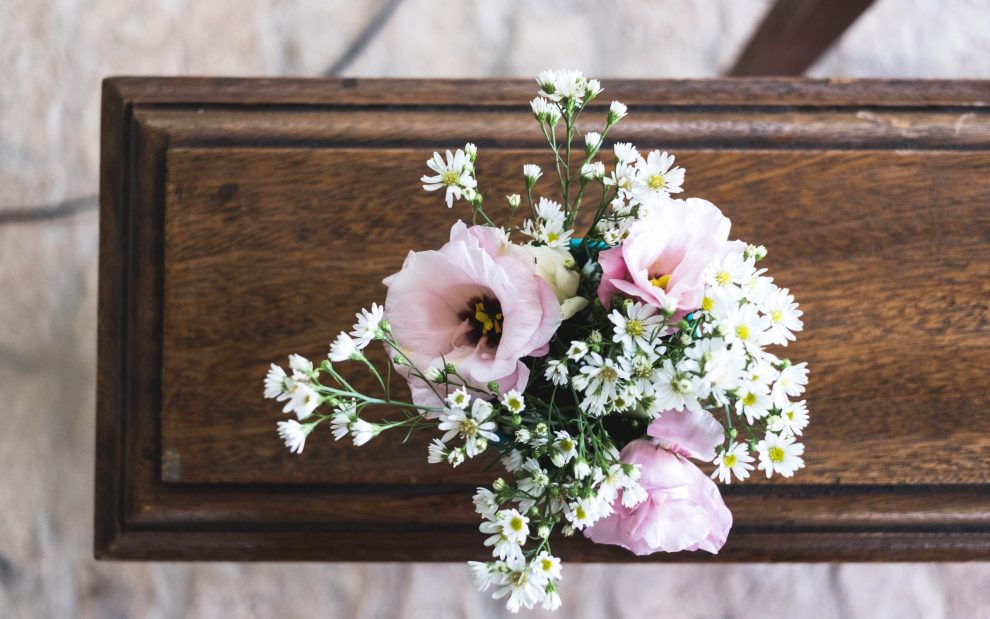“Always go to other people’s funerals, otherwise they won’t go to yours,” said Yogi Berra. You have to admit Yogi had a point, in his inimitable fashion.
My kids, however, would loudly disagree, maintaining that they’ve been hauled to more wakes in any given year than their friends have attended in their entire lives. What can I say? That we know a lot of people who happen to die?
Well, yes we do. My husband and I still live in the city of our birth, encircled by relatives, friends, coworkers, and fellow parishioners. So every few months, someone calls to report that a friend’s dad has died or that the old usher from the 5 o’clock Mass has passed away.
Like a tornado or an earthquake, death is one of the last big remaining gatecrashers of a scheduled life. You have your week all planned down to the minute, and blam, here comes death butting its ugly way in. You hadn’t really planned on seeing a dead person or confronting your own mortality this week, had you?
Still, the decision is pretty straightforward. You rearrange your schedule if necessary, put on some decent clothes, and get yourself to the wake. Bring the kids if you can. Going to a wake is one of the works of mercy, after all.
My philosophy about wakes is pretty simple: the more people, the better. If four of us can go, that’s better than sending only one who will supposedly represent our family. Representing may work for the vice president when he stands in at a state funeral, but for the rest of us, getting your actual body there is important.
Wakes, after all, revolve around bodies: the Body of Christ, which saves us from eternal death; the dead body, there in the casket; and the bodies that kneel and weep or that stand around and tell funny stories about the one who’s laid out.
The dead body, of course, says nary a word but launches a thousand conversations, spoken and not. “A person who has ceased to be,” writes poet-undertaker Thomas Lynch, “is as compelling a prospect as it was when the Neanderthal first dug holes for his dead, shaping the questions we still shape in the face of death; ‘Is that all there is?’ ‘What does it mean?’ ‘Can it happen to me?’ “ I’ve been to wakes without a body at all—just a photo, perhaps an urn of ashes—but I feel as if I’m at a party minus the guest of honor.
Early Christian customs at death grew from our respect for the body, which will be raised in the fullness of time. Families would chant antiphons as they washed the body and prepared it for burial: In the face of death, Christians always sing of life in Christ. That takes guts, and a stubborn faith.
Now, as then, death rightly demands we make time for it. Anyone who’s been at wakes where only a handful gathered knows that every one in attendance is a towering redwood of support. Each person at my father’s wake was a walking blessing, a testimony to their relationship with my dad or my family. Each one stood up against a culture that seeks to sanitize death and whisk the dead away unseen.
The late Bishop Kenneth Untener insisted that the wake, not the funeral Mass, was the time to tell stories honoring the dead. At some wakes, yes, these stories are louder than at others. At age 9, my daughter wondered why at wakes people laugh and talk as if at a party: “Isn’t it disrespectful?”
I explained that Irish wakes are noisier than wakes in other cultures, but this means no disrespect. Evolving from their long roots in Ireland, where wakes once involved music, imbibing, games, and sexual encounters, they also helped mourners stay awake—important in earlier centuries, when family members carefully watched or “waked” the body to see if the deceased would wake up, not being dead after all.
Just the other day my husband said to me, “You remember now, wake me for two nights, not one.” He is hale and hearty, but hey, you can’t be too careful. And he’s right that the two-night wake succeeded better at letting the reality of death seep in, but you don’t find them much anymore.
If it seems macabre that a man in his 40s would be thinking about this, all I can say is that the Irish tend to be preoccupied with this kind of thing. They don’t call the death notices the “Irish sports pages” for nothing.
Image: Unsplash/Mayron Oliveira














Add comment